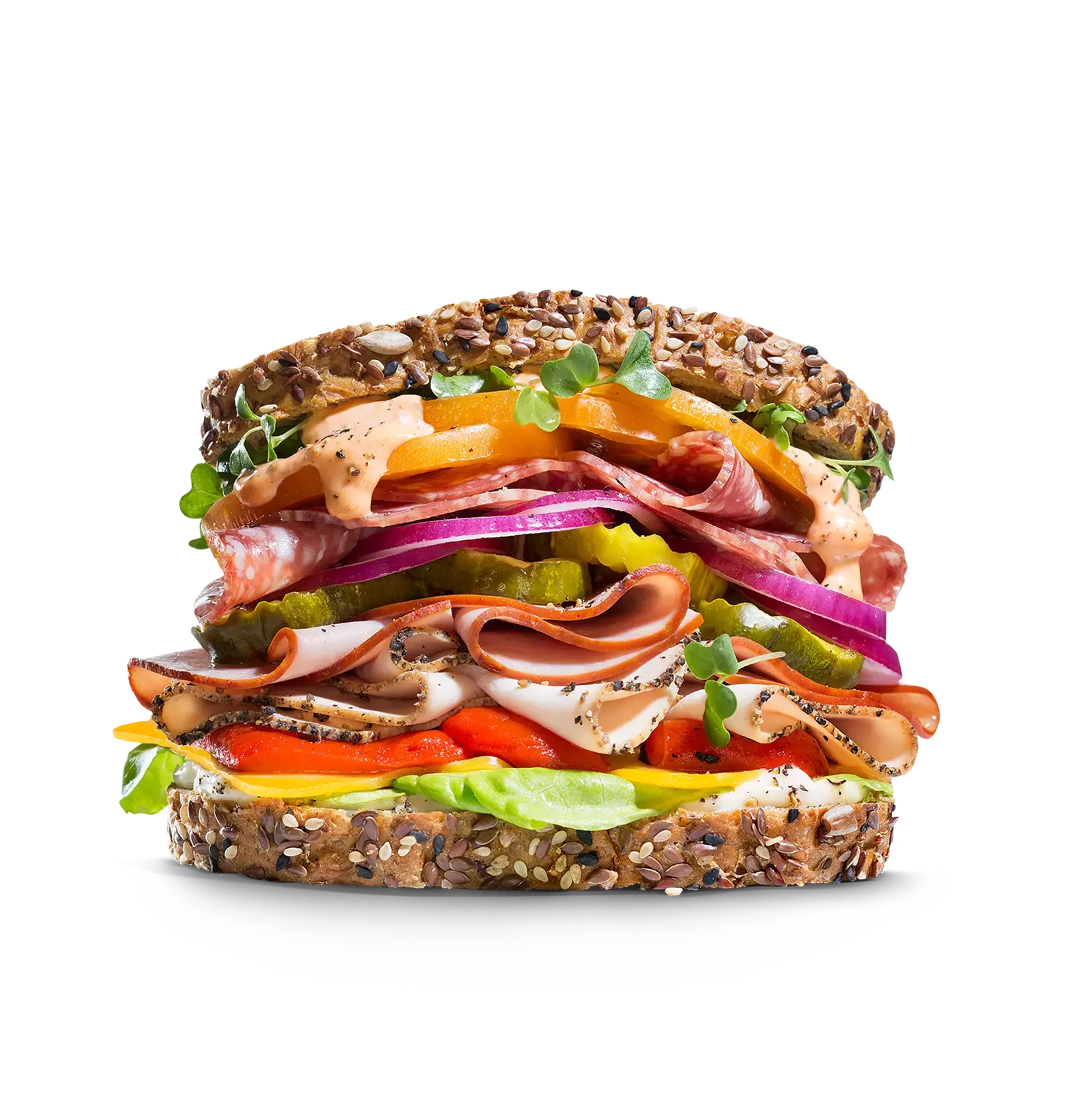Featured in this post
7 Pitfalls When Selecting and Implementing an ERP for the Food Industry and How to Avoid Them
7 Pitfalls When Selecting and Implementing an ERP for the Food Industry and How to Avoid Them

Not knowing what to expect from a situation can be frustrating, especially when you know confronting the challenge will require your time, energy and resources. In some cases, it can cause "analysis paralysis," delaying progress when you need to move forward—and in other instances, it can lead to an unfortunate error.
When the matter at hand is as important as choosing an enterprise resource planning (ERP) system for your food and beverage business and moving forward with digital transformation, you really can’t afford to spend an indefinite amount of time in deliberation. Finding answers to your questions about ERP software needs to be high on your list of short-term priorities.
Just as crucial is knowing the common mistakes made when companies choose and deploy a solution and how you can successfully steer clear of those issues. To prepare you for this vital task, we’ve collected a list of seven potential pitfalls when selecting and implementing an ERP for the food industry, as well as best practice advice so that you can avoid them.
1. Not Preparing Properly for the Journey
Just as you wouldn’t set out on an extended day hike without a trail guide and the necessary gear, you shouldn’t begin the initiative of shopping for a food ERP and putting the system in place without preparing beforehand. One of the key initial steps is of course research and a thorough evaluation of the options on the market, which is sometimes handled with a request for proposal (RFP).
You also need to prepare internally by defining your critical processes, establishing an end goal and getting buy-in from all of your departments and key stakeholders. Creating a dedicated project team is a must as well, and you should strive to include individuals from various roles and levels within the organization so that you have a variety of perspectives represented and keep everyone engaged.
2. Not Planning to Deploy via the Cloud
While in the past on-premise implementations of ERP software were the accepted standard, technology now offers a viable and attractive alternative in the form of cloud-based deployments. As your competitors opt for cloud solutions and gain the advantages that the software provides, it could prove costly for your business to ignore the benefits this model offers while your competition forges ahead.
A cloud deployment offers ongoing scalability as your business grows, as well as extra resilience in the event of an unplanned outage or cybersecurity concerns. Here at Aptean, we offer our ERP for the food industry in the cloud on a Software as a Service (SaaS) basis, which includes consistent monitoring to keep your system healthy while making integrations with other software easier to implement.
3. Selecting a Solution that Lacks Vertical-Specific Features
The food and beverage industry is comprised of a wide variety of verticals and sub-verticals, each with its own unique challenges and highly specialized processes that require purpose-built tools. While choosing a generic, “one size fits all” ERP might seem like the safe bet, the reality is that decision could result in expensive modifications or customizations.
That’s why concentrating your search on industry-specific ERPs that offer the features that food and beverage companies need for daily operations is the smart approach. A solution that is tailored to your market also makes a difference for the bottom line—IDC’s 2022 Global Food and Beverage Industry Trends and Strategic Insights whitepaper commissioned by Aptean reported that companies with specialist food and beverage ERPs increased their revenue by 5.3% and profit by 3.9% on average in 2022, compared to just 2.9% and 3.7% for those with a generic system.
Aptean Food & Beverage ERP should be at the top of your list of solutions built especially for the food and beverage industry, as our software offers expiration management, labeling and regulatory compliance features that businesses like yours must have to provide safe, high-quality products.
4. Going with a Vendor that Lacks Food and Beverage Industry Expertise
This is related to the above point about the need for industry-specific functionalities but distinct enough that it warrants a separate discussion. You must be sure that the vendor of your chosen software understands the food and beverage market and has worked with clients like your business in the past—otherwise, you may find that they simply don’t “speak your language” or understand your challenges.
Assessing the system for its applicability to the food and beverage world will be a good indicator of how well a provider knows the space, but you should also engage in conversation and research to get a feel for how far their knowledge goes.
At Aptean, our team of dedicated professionals has decades of collective food and beverage experience and extensive knowledge of best practices to assist you.
5. Choosing a System Based on Price Alone
While finances will no doubt be a consideration when you’re narrowing down your options for the specialized ERP that you’ll select, using the price as the most important factor when weighing the pros and cons of each is a mistake. After all, if you select the cheapest option but later find that it doesn’t suit your needs, that could result in even greater expenses when you have to replace the system later.
So, instead of simply going with the software that offers the lowest price point, aim to maximize the out-of-the-box, organization-wide impact that the system will provide to ensure you maximize your ROI. To that effect, our food and beverage ERP offers built-in tools for end-to-end traceability, recall management, product specifications and trade management, as well as integrated warehouse management and inventory control features.
6. Ending Up with an Unintuitive, Difficult-to-Use Platform
There’s always a learning curve when you install new software. While it can be made less steep with the prudent step of providing sufficient training for your employees, if you don’t pick an ERP solution that was designed with the end users in mind, you can end up with a system that lacks an intuitive look and feel, causing long-term problems that hamper productivity and profitability.
That means you should look for a system with an easy-to-learn and user-friendly interface, including drag-and-drop, point-and-click, searching and filtering functionalities—and be sure to request a demo before making a decision.
Aptean Food & Beverage ERP checks all those boxes and leverages unique, industry-specific technologies built on the Microsoft Dynamics 365 Business Central platform, lending it a sense of familiarity.
7. Not Seeking Support from a Qualified Provider
You’ll find plenty of ERP software vendors that are happy to sell you their product off the proverbial shelf with little to no guidance or support. That might seem fine on the surface since it keeps the hassle to a minimum, but you could be setting yourself up for struggles down the road, as you’ll almost certainly have questions—and possibly some hiccups during set-up—that require provider assistance.
And that’s without considering that the ERP implementation process takes planning, time and careful execution for a successful rollout, all of which is much more easily accomplished when your vendor has your back. Aptean strives to act as a partner for every customer we serve, and that includes helping to draw up a deployment roadmap and providing advice every step of the way.
Aptean: Superior Solutions and Service
Now that you’ve read this post, you hopefully feel more prepared to take on your organization’s digital transformation journey and confident that you won’t succumb to the potential pitfalls that lie in wait. There’s still plenty of investigation and evaluation to be done on your part, both with regards to the systems on the market and the vendors that sell them, but at least you know what to expect.
We’ve also outlined some of the ways that Aptean’s solution, approach and culture can maximize your chances for streamlined food and beverage ERP implementation, but there are a few additional reasons you should consider us as your first choice for a software provider. First, we know the food and beverage world and are committed to serving the industry, hosting exciting events like our annual Food and Beverage Symposium.
Then, there’s the fact that Aptean Food & Beverage ERP won Frost and Sullivan’s prestigious 2022 Product Leadership Award in North American ERP Software for the Food and Beverage Industry. This recognized our software’s ability to deliver on quality and reliability while matching our customer’s needs, providing tremendous value and an appealing, approachable design.
Finally, there’s the fact that we offer many other solutions besides ERP software, including overall equipment effectiveness (OEE), enterprise asset management (EAM) and product lifecycle management (PLM) systems built for the food and beverage industry. With Aptean, you can get all the software you need from one trusted provider that really understands your business and the challenges of your market—and common operational issues facing food manufacturers.
So, if you’re ready to learn more about Aptean Food & Beverage ERP and how choosing our solution will allow your business to avoid the common mistakes in food ERP selection and implementation, contact us today. We can also request a personalized demo at your convenience.
Get in Touch Today to Speak With an Expert in Your Industry
To grow your business, you need a food ERP built specifically for your industry challenges. We're ready to help—reach out today and we'll help you find the right solution.



 Jack Payne | Vice President, Product Management & Solutions Consulting
Jack Payne | Vice President, Product Management & Solutions Consulting